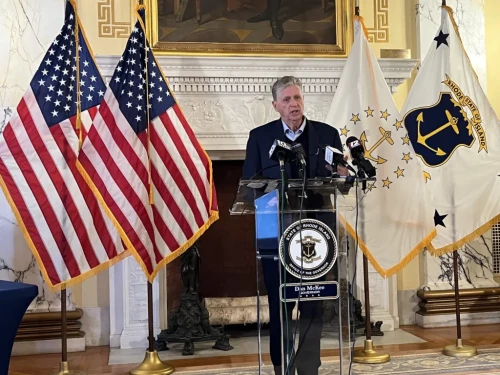As climate change leads to more extreme weather events, many coastal property owners in Rhode Island have seen their insurance premiums go through the roof. Others have had their policies canceled altogether.
It’s a crisis that Rhode Island U.S. Senator Sheldon Whitehouse says is expected to get worse, which is why he’s glad that the topic was a focal point at this year’s COP30 global climate conference in Brazil.
“At a minimum, what came out of it is much more attention to the insurance/mortgage/property values problem that climate risk is causing,” Whitehouse, who returned from the conference over the weekend, said at a news conference on Tuesday. “Very few people had connected the dots, but a lot of people asked me, ‘Look, let’s do more on this.’”
The Trump Administration declined to send a delegation to the conference, but Whitehouse, a ranking member on the Senate Environment and Public Works Committee, traveled there to meet other world leaders.
Whitehouse says he’s glad to see that members of the international community are recognizing the scope of the problem. He says it’s about time, too, because Rhode Island has a lot at stake.
“(Coastal communities are) actually beginning to see it show up in their municipal bond ratings,” Whitehouse said. “They’re getting new questions about how much of their tax revenue comes from coastal properties that might not be there long, or might not have the kind of value that they can tax at the current rates.”
In addition to acknowledging the insurance crisis in coastal areas, Whitehouse says he’s optimistic that international leaders are becoming more receptive to the idea of taxing carbon emissions.
“There simply aren’t scenarios any longer,” Whitehouse said, “where we get on a pathway to climate safety without putting a price on carbon pollution.”







